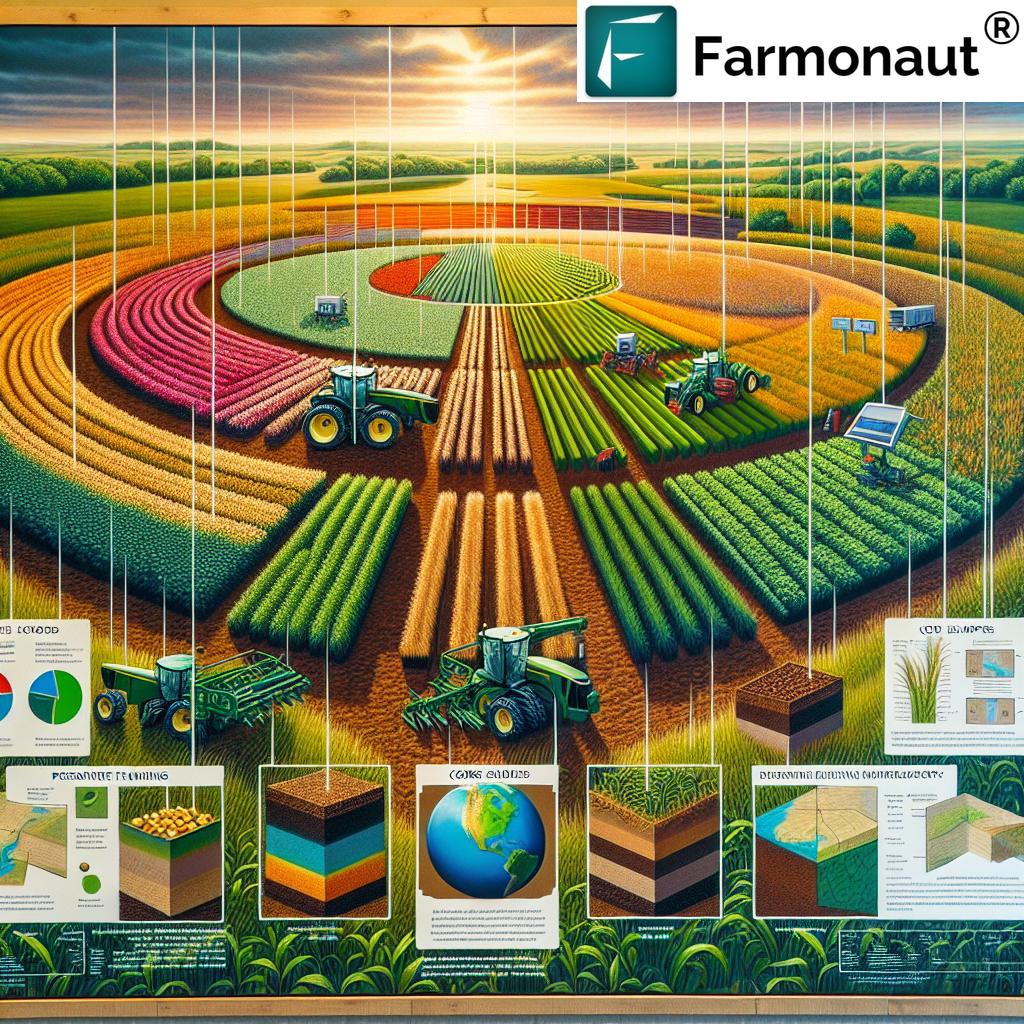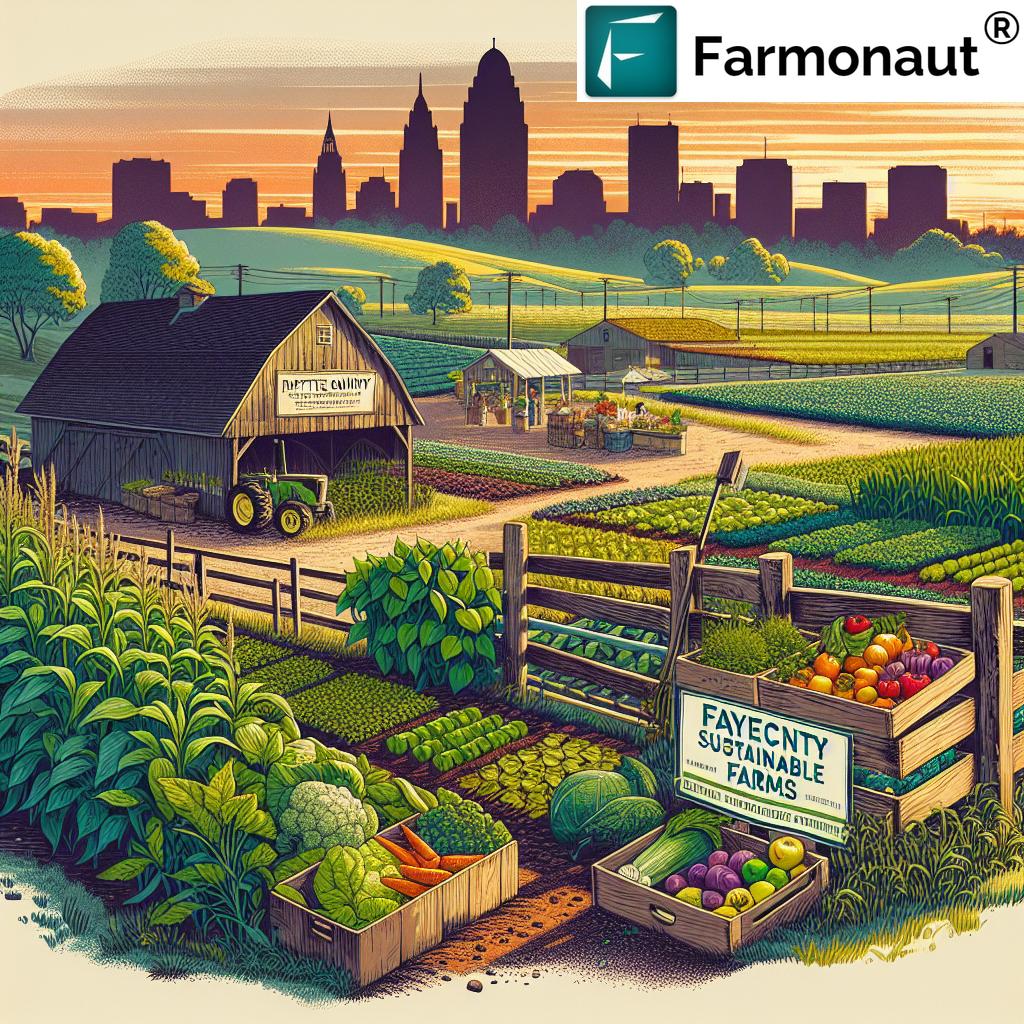Agronomy Courses: Unlock Nebraska’s 7 Secret Skills!
Agronomy—the science and technology of soil management and crop production—remains foundational to agriculture, farming, and forestry worldwide. In Nebraska, a region celebrated for its vast agricultural landscapes, generations have pursued agronomy courses to not only learn the scientific and practical aspects of soil and crop management, but also to unlock the state’s 7 secret skills that underpin modern agricultural success.
As we explore the evolving world of agronomy education, this guide will help readers—from aspiring agriculturalists to experienced farm managers—navigate the array of educational pathways, innovative technologies, and career opportunities this dynamic discipline offers. We’ll use Nebraska as our lens, connecting local excellence to global leadership in sustainable agriculture.
Table of Contents
- Why Agronomy—and Agronomy Courses—Matter
- Nebraska’s 7 Secret Skills in Agronomy
- Educational Pathways in Agronomy
- Core Areas of Study in Agronomy Courses
- Precision Agriculture and Advanced Technologies
- How Farmonaut Empowers Agronomy Students and Professionals
- Nebraska Agronomy Course Comparison Table
- Agronomy Career Opportunities & Next Steps
- Frequently Asked Questions (FAQ)
- Conclusion
Why Agronomy—and Agronomy Courses—Matter
Agronomy, at its core, is the bridge between cutting-edge science and real-world farming practices. It brings together plant genetics, plant physiology, meteorology, soil science, and ecology—blending disciplines like biology, chemistry, economics, and earth science for a holistic understanding of crop production.
By undertaking agronomy courses, we equip ourselves with the knowledge and skills needed to tackle some of today’s most pressing global challenges:
- Increasing food production to feed a growing population
- Improving soil health and fertility for sustained yields
- Managing natural resources and protecting biodiversity
- Advancing sustainable farming practices to combat climate change
- Promoting economic viability for rural communities
Agronomy education is not just about theory—it is about preparing us for meaningful, high-impact roles in farming, agribusiness, research, and stewardship of our planet’s natural resources.
Whether through an associate degree at Nebraska College of Technical Agriculture in Curtis, a bachelor’s in agronomy from a major research university, or a sustainable agriculture degree that specializes in soil management, these programs pave the way for future-ready careers and agricultural innovation.

Nebraska’s 7 Secret Skills in Agronomy
Across Nebraska’s top agronomy courses, seven skills stand out—skills honed and enhanced by generations of researchers, educators, and farmers. These core competencies are embedded in curricula from Curtis to Lincoln and serve as Nebraska’s “secret” agricultural advantage.
- Soil Health and Fertility Assessment: Mastering soil management and understanding soil pH, nutrient cycles, and organic matter to support healthy, productive crops.
- Advanced Crop Production Techniques: Applying science-based planting, cultivation, and harvesting methods for cereals, legumes, oilseeds, and more—maximizing yields and quality.
- Integrated Pest Management: Identifying and controlling pests, diseases, and weeds using sustainable, ecosystem-friendly approaches.
- Agroforestry and Diversified Systems: Leveraging the interplay of crops, pastures, and trees to improve biodiversity, resource management, and farm resilience.
- Precision Agriculture: Harnessing data, satellite imagery, and technology for site-specific decisions—optimizing irrigation, fertilizer application, and overall farm management.
- Climate-Smart Cropping and Meteorology Awareness: Integrating real-time meteorology data into planting, irrigation, and pest management strategies for resilient production.
- Agribusiness Leadership and Communication: Blending economics, entrepreneurship, and stakeholder engagement for impactful roles in modern agroforestry and sustainable agriculture.
Every top university and technical college in Nebraska weaves these seven skills into its agronomy courses, setting up graduates for rewarding, sustainable careers across the broader agricultural value chain.
Educational Pathways in Agronomy: From Curtis to Advanced Degrees
Nebraska’s diverse agronomy educational offerings ensure that, whether we’re just beginning or looking to advance our careers, there is a program designed for every ambition. Here’s an overview:
Associate Degrees (Curtis, Chippewa Valley, and Beyond)
Let’s start with programs like the Associate of Science in Agronomy at Nebraska College of Technical Agriculture (Curtis). These agriculture management courses introduce:
- Foundational soil management and crop production principles
- Practical lab and field training in fertility, planting, and harvesting
- Latest precision agriculture techniques and technologies
- Core skills in pest management, resource allocation, and agronomic practices
In addition, institutions like Chippewa Valley Technical College offer programs emphasizing:
- Plant science fundamentals for crop nutrition and growth
- Farm business economics and management
- Hands-on experience with the latest farming equipment and software
Bachelor’s and Master’s Degrees
With a bachelor’s in agronomy, students can:
- Specialize in high-impact areas such as plant breeding, biotechnology, crop protection, or sustainable agriculture
- Undertake supervised agronomy research addressing real-world challenges
- Develop interdisciplinary expertise that spans genetics, ecology, biology, and earth science
Graduate programs—like the M.Sc. in Agronomy at Babcock University—enable students to:
- Pursue advanced cropping systems, soil fertility, and environmental sustainability research
- Participate in university-driven projects with local, regional, and global impact
- Position themselves for influential roles in research, development, and policy
Regardless of the level, Nebraska’s education institutions emphasize both theoretical understanding and hands-on exposure, preparing us for the spectrum of agronomy career opportunities.

Core Areas of Study in Agronomy Courses
What exactly do we learn in professional agronomy courses? Below are the key areas that form the backbone of every diploma, bachelor’s, or master’s degree in soil management and crop production:
-
Crop Production
We study the full lifecycle and cultivation of cereals, legumes, and oilseeds—covering best practices in planting, irrigation, harvesting, and post-harvest management. Current crop production techniques also help us adapt to shifting climates and markets. -
Soil Science and Management
We master soil types, fertility management, nutrient cycles, adjusting for optimal pH, organic matter, and structure. Precision in soil analysis guides fertilization and boosts sustainable yields. -
Pest Management in Agriculture
Identifying, monitoring, and controlling pests, plant diseases, and invasive weeds are core to protecting yields. Integrated pest management (IPM) strategies emphasize sustainability and reduced environmental impact. -
Agroforestry Systems
Combining trees, crops, and/or livestock to create resilient agricultural systems—boosting biodiversity, soil conservation, and long-term farm productivity. -
Precision Agriculture Programs
We leverage data—such as that provided by Farmonaut’s satellite-based solutions—for site-specific monitoring of crop health, resource allocation, and adaptive management, significantly optimizing farm inputs and boosting overall economic returns. -
Meteorology and Decision-Making
Real-time weather data and climate models guide timely activities such as irrigation, planting, and protective spraying—key components in reducing risk and increasing efficiency. -
Economics, Agribusiness, and Communication
Agronomy must make sense economically and socially. Students learn to interpret market signals, engage with agribusiness strategy, and build communication skills for stakeholder collaboration.
Precision Agriculture and Advanced Technologies
Modern crop production increasingly demands that we do more with less—maximizing yields while conserving resources and minimizing environmental impacts. Here’s where precision agriculture programs shine.
- Satellite Crop Health Monitoring—With platforms like Farmonaut, we can leverage multispectral satellite imagery to assess soil moisture, detect early crop stress, and make informed decisions on fertility and irrigation. The result? Timely, targeted actions that enhance both productivity and sustainability.
- AI-Driven Farm Advisory (Jeevn AI)—Farmonaut’s advanced AI-based advisory tools provide personalized, real-time weather forecasting and best-practice recommendations for crop management. This supports producers in promptly addressing threats—like pest outbreaks—and optimizing every stage of growth.
- Blockchain Product Traceability—By utilizing blockchain ledgers, Farmonaut ensures all stages of the production and distribution process are transparent and secure. This strengthens trust with buyers and consumers, especially for high-value commodities.
- Resource & Fleet Management—Large farms and agribusinesses can optimize their operations with fleet management tools, minimizing costs and reducing downtime.
- Carbon Footprint Tracking—As sustainable certification and climate impacts grow in importance, carbon monitoring features become essential. They allow us to track and reduce emissions—supporting environmental goals and compliance for both farms and large agribusinesses.
- Open API & Developer Integration—For researchers, developers, and enterprise teams, Farmonaut’s satellite and weather data API and developer docs make it easy to integrate the latest data-driven insights into custom applications or educational platforms.
These digital, data-rich approaches are now central to teaching and research in Nebraska’s top agronomy courses.
How Farmonaut Empowers Agronomy Students and Professionals
Today, integrating smart technology is more than just an option—it’s an imperative for modern agronomy education. With Farmonaut, we gain access to:
- Real-time crop health, soil moisture, and stress monitoring—Providing actionable, region-specific insights
- AI-based farm advisory for precision decision-making—Reducing manual guesswork and risk
- Blockchain for traceable, transparent supply chains—Meeting the demands of both global and local food systems
- Fleet and resource management for agribusiness scale—Improving sustainability and operational efficiency
- Easy integration via app, web, and API—Making advanced tools accessible to universities, instructors, and students
Most importantly, Farmonaut’s value proposition lies in making advanced precision agriculture and resource management tools truly affordable and accessible. We no longer need expensive hardware or proprietary systems—just a phone, browser, or API connection.
By adopting large-scale farm management solutions, universities and research centers in Nebraska can help prepare the next generation for digital-first agriculture.
Nebraska Agronomy Course Comparison Table
| Course Title | Institution/Provider | Duration | Core Skills Covered | Mode of Study | Estimated Cost (USD) | Career Pathways | Latest Research Focus |
|---|---|---|---|---|---|---|---|
| Associate of Science in Agronomy | Nebraska College of Technical Agriculture (Curtis) | 2 Years | Soil Management, Crop Production, Precision Ag, Pest Management | In-person (Lab & Fieldwork) | $9,000–$14,000 | Farm Technician, Field Scout, Crop Consultant | Precision Irrigation, Soil Fertility |
| Bachelor’s in Agronomy & Agribusiness | University of Nebraska-Lincoln | 4 Years | Soil Science, Plant Genetics, Economics, Crop Protection | In-person & Hybrid | $32,000–$50,000 | Farm Manager, Crop Specialist, Agri-Economist | Genetic Improvement, Crop Modeling |
| Diploma in Precision Agriculture | Chippewa Valley Technical College | 1 Year | GIS, Remote Sensing, Precision Crop Management | In-person & Online | $7,000–$12,000 | Precision Ag Tech, Data Analyst | Data-Driven Farming, Satellite Imagery |
| M.Sc. in Agronomy | University of Nebraska-Lincoln / Babcock University | 2 Years | Advanced Cropping Systems, Crop Ecology, Soil Nutrition | In-person / Online (Part-time) | $18,000–$25,000 | Research Scientist, Development Specialist | Sustainable Systems, Crop Physiology |
| Agronomy e-Learning Academy | Purdue University (Online) | 8–16 Weeks | Precision Ag, Crop Modeling, Remote Sensing | Online | $5,000–$9,000 | Ag Technology Specialist, Extension Officer | Machine Learning in Agriculture |
Agronomy Career Opportunities & Next Steps
With Nebraska’s world-class agronomy courses as our launchpad, a universe of agronomy career opportunities opens up—including specialties in soil management, agronomic research and development, precision agriculture, agribusiness, education, and policy. Here are some exciting roles:
- Farm Manager: Orchestrate entire operations—implementing advanced practices for optimal crop yields and resource allocation.
- Crop Consultant/Agronomist: Advise on soil health, fertility management, pest control, and technology adoption for improved productivity.
- Research Scientist: Investigate plant genetics, crop ecology, climate adaptation, or sustainable systems—often through university or government-funded research programs.
- Agribusiness Specialist: Manage value chains, marketing and distribution, or traceability for agricultural commodities.
- Extension Agent: Bring the benefit of research and new techniques directly to local farmers via state extension services.
- Agroforestry/Resource Conservation Expert: Design environmentally sustainable cropping systems using advanced soil and biodiversity management tools.
Increasingly, employers are seeking professionals with digital competencies—experience using precision agriculture software platforms, remote sensing, and data analytics—making Farmonaut training a definite plus in the labor market.
Planning to pursue advanced research or entrepreneurship? You’ll find opportunities not just in Nebraska or the Midwest, but globally—where sustainable agriculture degrees and experience with cutting-edge technologies make a real difference.
Enrich your agronomy journey with crop loan & insurance verification solutions from Farmonaut—empowering you to support farmers and institutions with data-driven credit and risk management.
Frequently Asked Questions (FAQ)
-
Q: What core topics do agronomy courses usually cover?
A: Key areas include soil management, crop production techniques, plant genetics and physiology, integrated pest management, precision agriculture, agroforestry, and sustainable business practices. -
Q: Why choose Nebraska for agronomy education?
A: Nebraska is a center for agricultural research and advanced farming practices. Courses here combine hands-on fieldwork with the latest in technology and sustainability—ensuring top-tier preparation for any agronomy career. -
Q: Do I need prior experience in farming to enroll in an agronomy degree?
A: No. Many programs, including those in Curtis and at universities, welcome students from diverse backgrounds. Foundational courses teach all the essentials from soil science to crop nutrition. -
Q: How does Farmonaut help agronomy students, researchers, and farmers?
A: Farmonaut provides real-time, data-driven solutions for crop health monitoring, AI-based advisory, traceability, fleet management, and carbon footprinting—all accessible via app, web, or API. This enables students and professionals to apply precision agriculture techniques directly in their studies and work. -
Q: Is it possible to specialize in precision agriculture?
A: Yes! Many Nebraska colleges and online programs offer focused precision agriculture programs, providing in-depth training in satellite imagery, GIS, remote sensing, and data analytics for smart farming. -
Q: What are some advanced agronomy career opportunities after graduation?
A: Graduates can pursue roles in farm or crop management, research, agribusiness development, extension services, agroforestry design, environmental consulting, and even entrepreneurial ventures via agtech or sustainable supply chains. -
Q: Can Farmonaut solutions be integrated with research at universities or large farms?
A: Absolutely—through the Farmonaut API and developer documentation, researchers, developers, and agri-educators can incorporate advanced satellite and weather data into their workflows.
Conclusion: Move from Classroom to Field—Unlock Nebraska’s Agronomy Advantage
By enrolling in Nebraska’s top-tier agronomy courses, we position ourselves at the forefront of a rapidly changing field—one that influences the future of food security, environmental sustainability, and resource management. From soil analysis and crop genetics to real-time monitoring and blockchain traceability, the skills acquired in these programs unlock a robust set of competencies that are globally sought after.
Thanks to digital tools and platforms like Farmonaut, anyone—from aspiring students to experienced agronomists—can access the latest precision agriculture techniques, optimize soil fertility, and ensure resilient, profitable production systems. Nebraska’s approach—rooted in tradition but powered by innovation—offers us the “7 secret skills” and a world-class education that goes far beyond the classroom.
Start your journey today with Farmonaut’s web or mobile platform, and experience how satellite analytics, AI, and sustainable best practices are shaping the next era of agriculture in Nebraska and beyond.
Ready to put agronomy science into practice? Join Nebraska’s leading courses, leverage Farmonaut’s cutting-edge tools, and unlock your agricultural future now!














